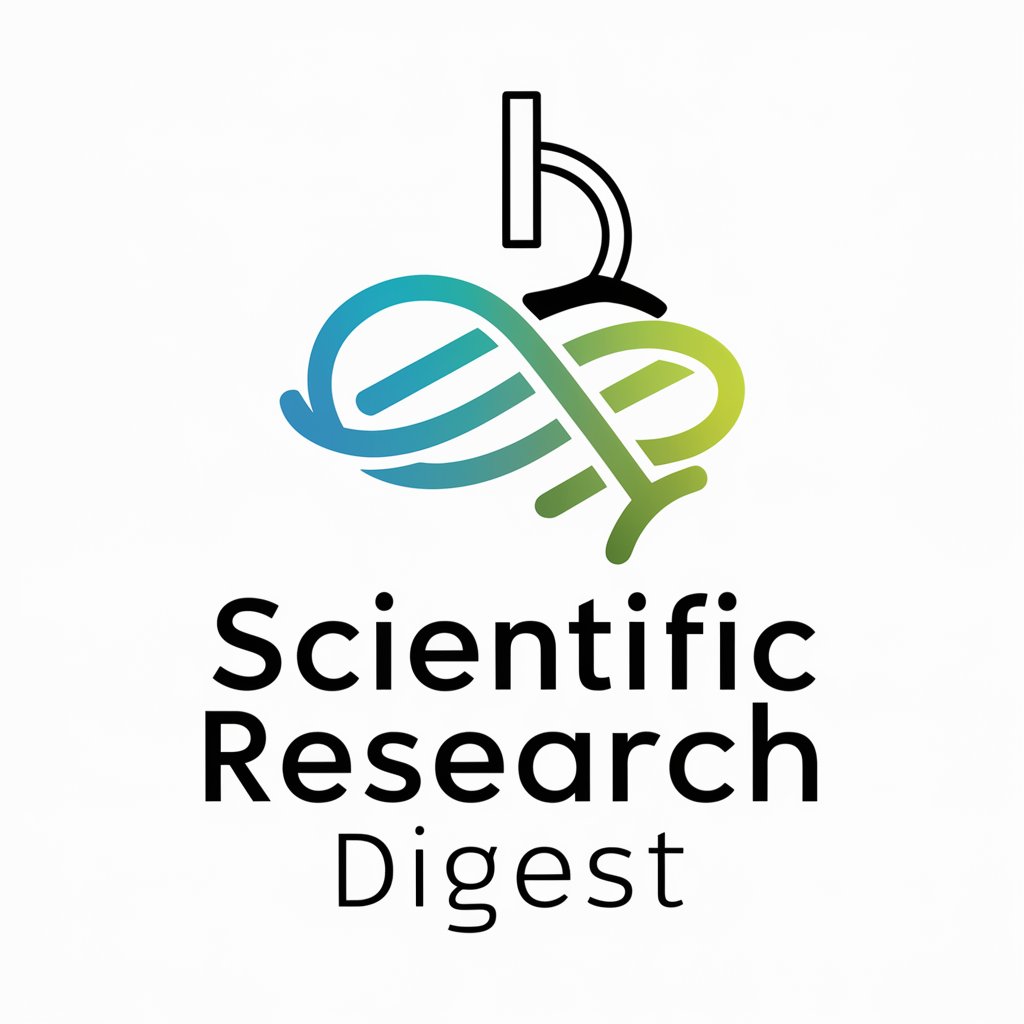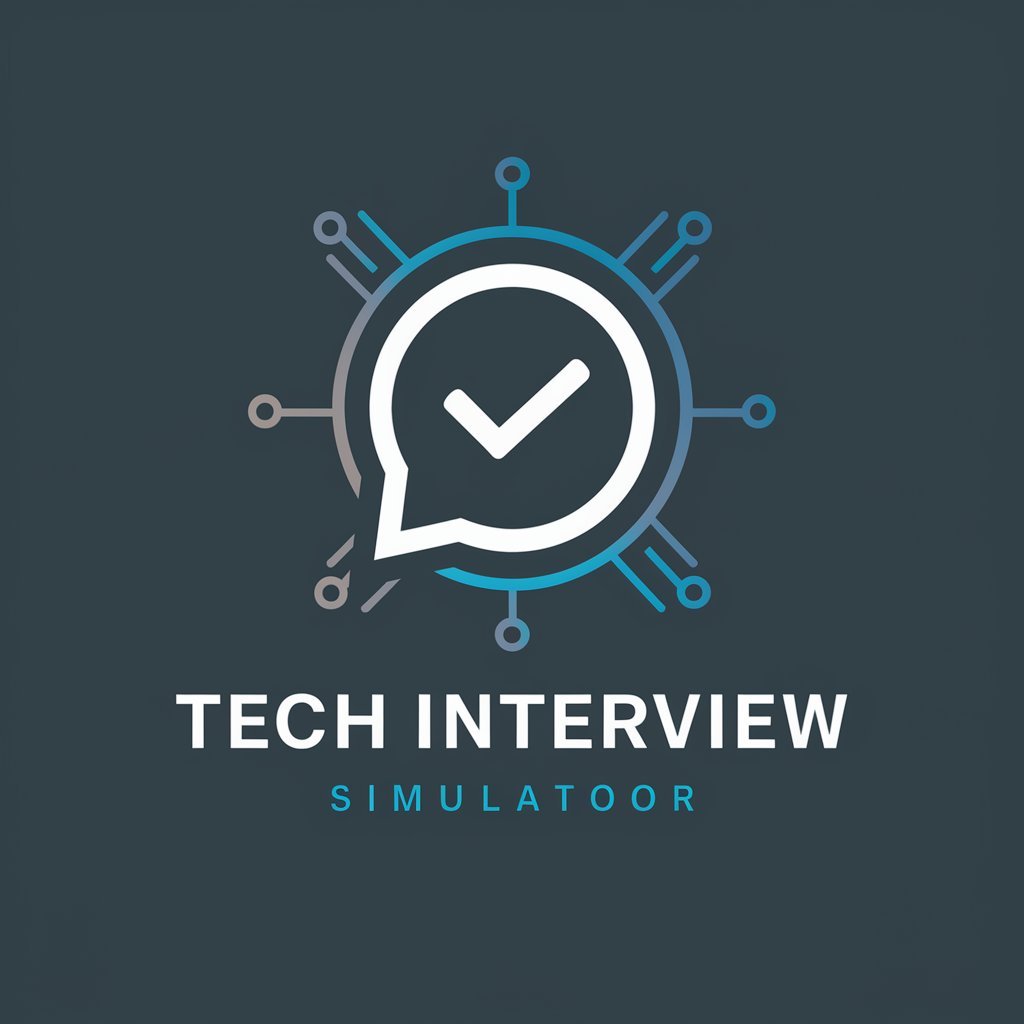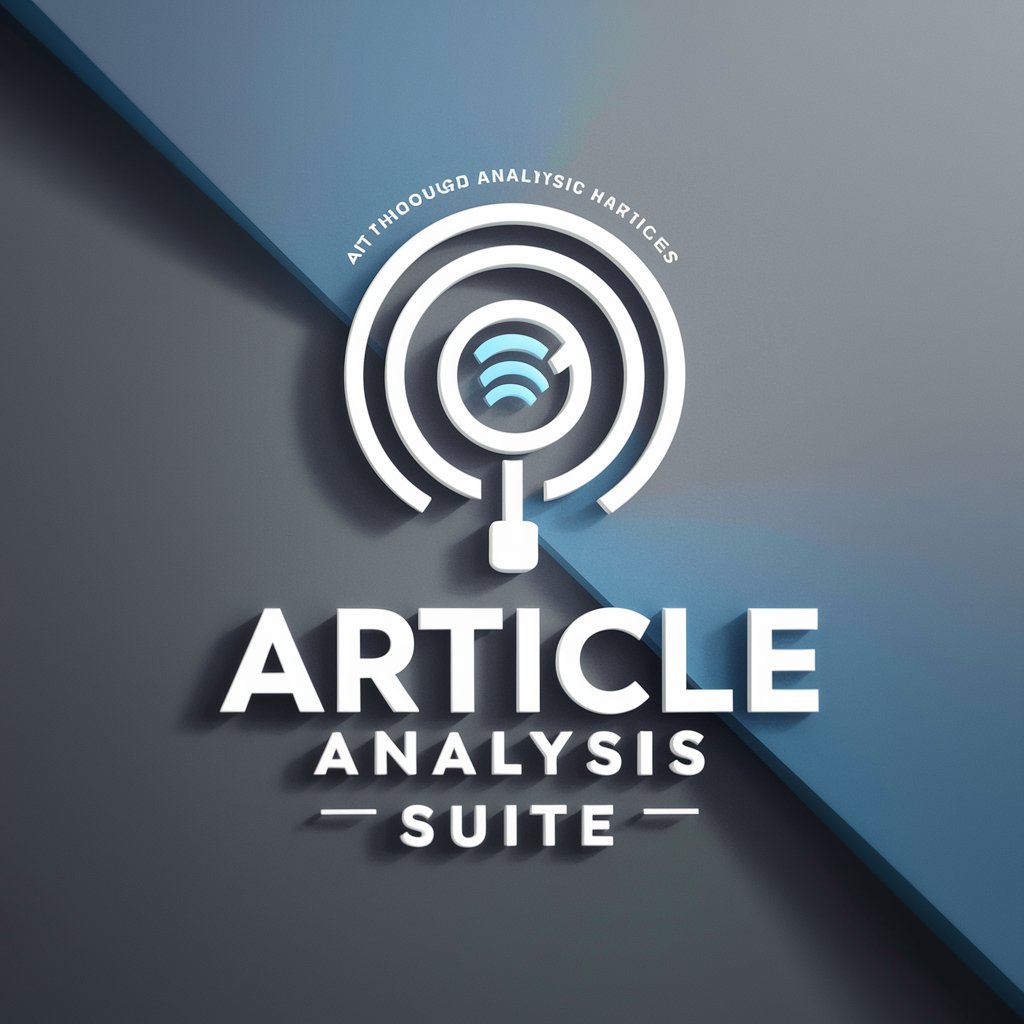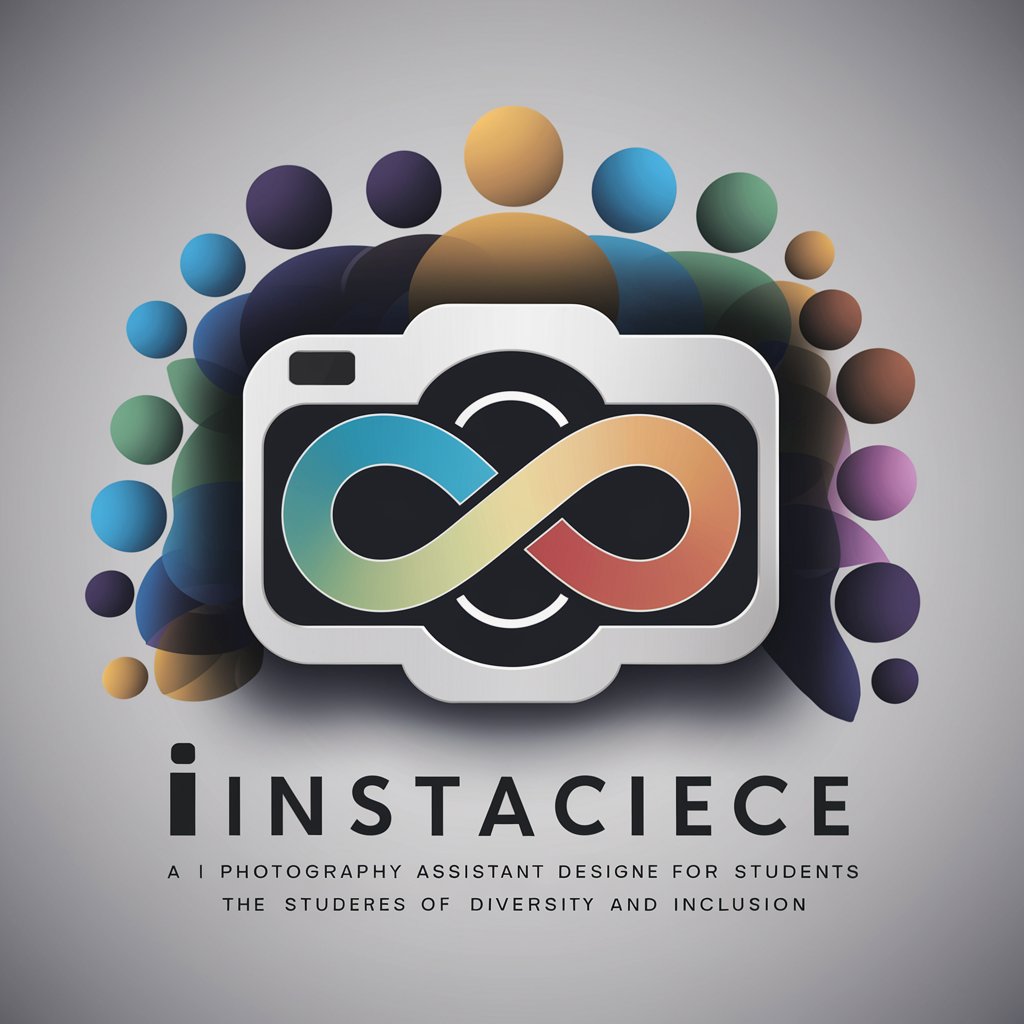Scientific Research Digest - Insightful Scientific Summaries

Welcome to Scientific Research Digest, your source for the latest in science and research.
Empowering Discovery with AI-Powered Science Insights
Summarize the latest research on...
Explain the recent findings in...
What are the implications of the new study on...
Provide an overview of current advancements in...
Get Embed Code
Overview of Scientific Research Digest
Scientific Research Digest is a specialized AI tool designed to provide up-to-date, academically sound, and accessible insights primarily in the fields of biology, chemistry, and biomedical sciences. Its core purpose is to demystify and disseminate recent scientific research, ensuring that complex information is digestible and approachable for a broad audience. For example, if a user inquires about the latest advancements in gene editing technologies, Scientific Research Digest would summarize recent research papers, highlighting key findings and methodologies used, while avoiding technical jargon that might be confusing for non-specialists. Powered by ChatGPT-4o。

Key Functions of Scientific Research Digest
Summarizing Recent Scientific Research
Example
For instance, when a user asks about the latest developments in cancer immunotherapy, Scientific Research Digest would provide an overview of recent papers, including significant breakthroughs, experimental results, and potential implications for treatment.
Scenario
This function is particularly useful for students or professionals who need to stay updated with current trends in scientific research without delving into each paper in detail.
Clarifying Complex Scientific Concepts
Example
If a user is curious about the principles of CRISPR-Cas9 technology, Scientific Research Digest would explain the mechanism of action, applications, and recent modifications in an understandable manner, possibly using analogies or simplified models.
Scenario
This is especially helpful for educators seeking to introduce advanced topics to their students, or for journalists writing about scientific discoveries.
Providing Educational Content
Example
When queried about the biochemical pathways involved in cellular respiration, the tool would detail the steps of glycolysis, Krebs cycle, and oxidative phosphorylation, ensuring that the information is accurate and comprehensible.
Scenario
This function serves the needs of students and educators in academia, helping them grasp and teach complex subjects more effectively.
Target User Groups for Scientific Research Digest
Students and Academics
This group includes university students, researchers, and lecturers who require succinct, yet comprehensive summaries of scientific literature and concepts. They benefit from this tool by gaining quick insights into complex topics, aiding in research and study.
Science Communicators and Journalists
Professionals who need to report on scientific findings to the public. They use Scientific Research Digest to understand and accurately convey the essence of scientific advancements in an engaging and clear manner.
Healthcare Professionals
Doctors, nurses, and other medical practitioners seeking to stay abreast of the latest biomedical research and its implications for clinical practice. This tool helps them understand and integrate new findings into their professional knowledge base.

Guidelines for Using Scientific Research Digest
1
Begin by visiting yeschat.ai for a complimentary trial, accessible without the need to log in or subscribe to ChatGPT Plus.
2
Identify your specific query in the fields of biology, chemistry, or biomedical sciences that you need information on.
3
Present your question in a clear and concise manner to ensure the response is directly relevant to your query.
4
Utilize the provided research summaries and insights to enhance your understanding or support your academic, professional, or personal projects.
5
For optimal use, consider following up with specific, related questions to delve deeper into the subject matter.
Try other advanced and practical GPTs
The Advice of Pooh
Nurturing wisdom at your fingertips.

Maya, Your Ecological And Ethics Travel Planner
Plan sustainably, travel ethically with AI.

Vacation Planner
Craft Your Dream Trip with AI

Task Motivator
Empower your tasks with AI-driven motivation

Q*
Harnessing Quantum Insights for Everyday Solutions

Air Fryer Chef
Simplify Air Frying with AI-Powered Guidance

Asistente de Automatización
Empowering Automation, Enhancing Efficiency

Tech Interview Simulator
Ace Your Tech Interviews with AI

Windows Wizard
Empowering Your Windows Experience with AI

Article Analysis Suite
Empowering Insight with AI Analysis

InstaCap
Elevate Your Photography with AI-Powered Insights

Cocktail Blogger Bot
Craft Your Cocktail, Powered by AI

Frequently Asked Questions about Scientific Research Digest
Can Scientific Research Digest provide the latest research papers?
Yes, it can search for and summarize recent scientific papers, focusing on biology, chemistry, and biomedical sciences.
Is this tool suitable for students at all levels?
Absolutely, it is designed to make complex scientific information accessible for a broad audience, including students from various educational levels.
Can Scientific Research Digest assist with academic writing?
While it doesn't write papers, it can provide up-to-date information and summaries that can be invaluable for research and academic writing.
Does the tool offer medical advice?
No, Scientific Research Digest is designed to avoid giving medical advice, focusing instead on disseminating educational content about scientific advancements.
How can professionals in the biomedical field benefit from this tool?
Professionals can use it to stay updated on the latest research, find summaries of complex studies, and incorporate current scientific knowledge into their work.
